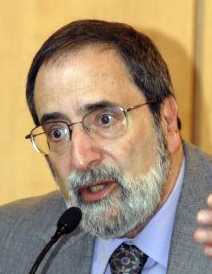By Laurie Baron

SAN DIEGO– There’s a new movie venue in San Diego. The Media Arts Center San Diego recently began screening films in its renovated facility at 2921 El Cajon Boulevard between 30th and Kansas Streets. Dedicated to the “inclusion of underrepresented communities in the media arts field and the portrayal of accurate images of these communities by mainstream media,” the Digital Gym Cinema, an intimate setting seating 46 viewers, is currently showing La Rafle through May 9th.
While a box-office and critical success in France, La Rafle received limited distribution in the United States. Overshadowed by Sarah’s Key, it ended up in limited engagements and being shown at film festivals, one of which was the 2011 San Diego Jewish Film Festival. If you did not have the opportunity to see it then, you should try now. Directed by Rose Bosch, it chronicles the infamous roundup of over 13,000 Jews in Paris by French gendarmes on July 16 and 17, 1942. Focusing on stories of various adults and children arrested, interned at the Vélodrome d’Hiver, and deported initially to transit camps and then to Auschwitz, the movie constitutes a powerful indictment of the collaboration and initiative of Vichy France in the implementation of the Holocaust. It features strong lead performances Jean Reno and Mélanie Laurent.
Since La Rafle was reviewed by this publication back in 2011, I will refer readers back to that column by Laurel Corona:
I generally concur with Cornona’s criticisms of some contrived and emotionally manipulative scenes, but feel that her assumption of audiences having seen too many Holocaust films already for this one to engage and enrage them may be unfounded for most viewers. The depiction of French culpability and indifference is what distinguished this film for French audiences and it merits the attention of Americans as well. My own reservation about the film concerns its surreal cutaway scene of Hitler micromanaging the raid on the Parisian Jews. It lacks historical basis and detracts from the film’s theme of French responsibility for the roundup. During this earlier period in the war, Vichy still governed Southeastern France and made a calculated decision to apprehend and expel Jewish immigrants rather than French Jewish citizens.
Incidentally, I had a chance to speak with Lisa Franek, the Artistic Director of the Digital Gym. She informed me that the Israel film The Matchmaker will open there on May 31st.
*
Lawrence Baron recently retired from being the Nasatir Professor of Modern Jewish History at San Diego State University. He is the author of Projecting the Holocaust into the Present: The Changing Focus of Contemporary Holocaust Cinema (Rowman and Littlefield: 2005) and editor of The Modern Jewish Experience in World Cinema (Brandeis University Press: 2011). He may be contacted at lawrence.baron@sdjewishworld.com